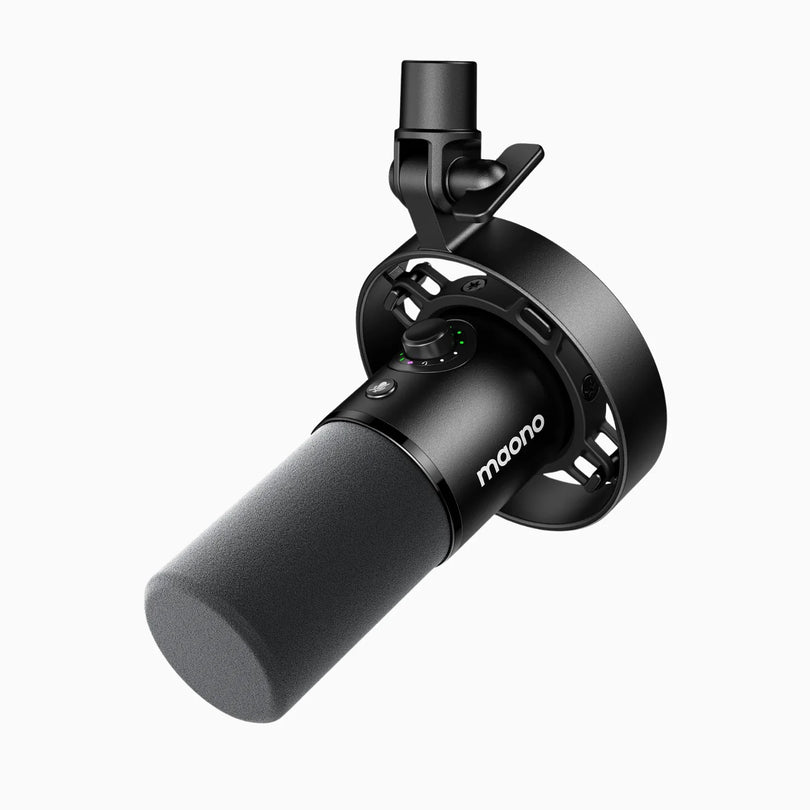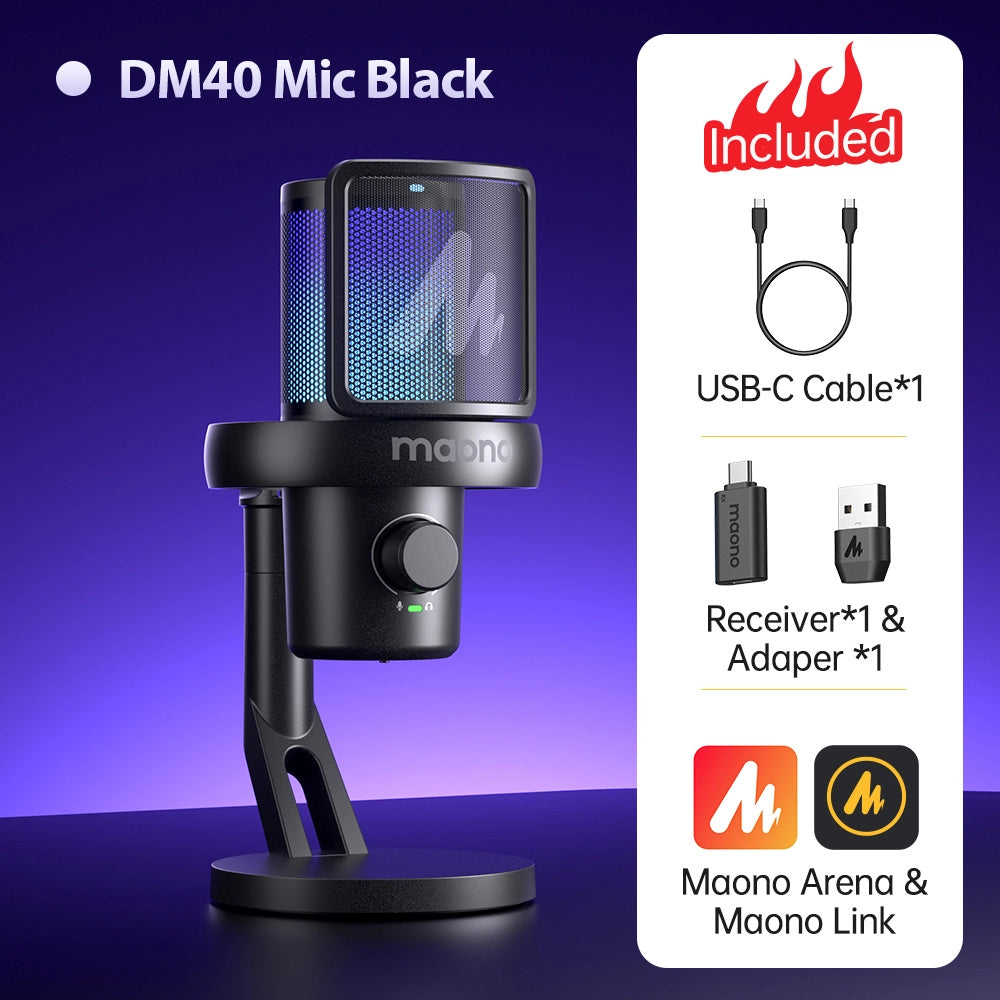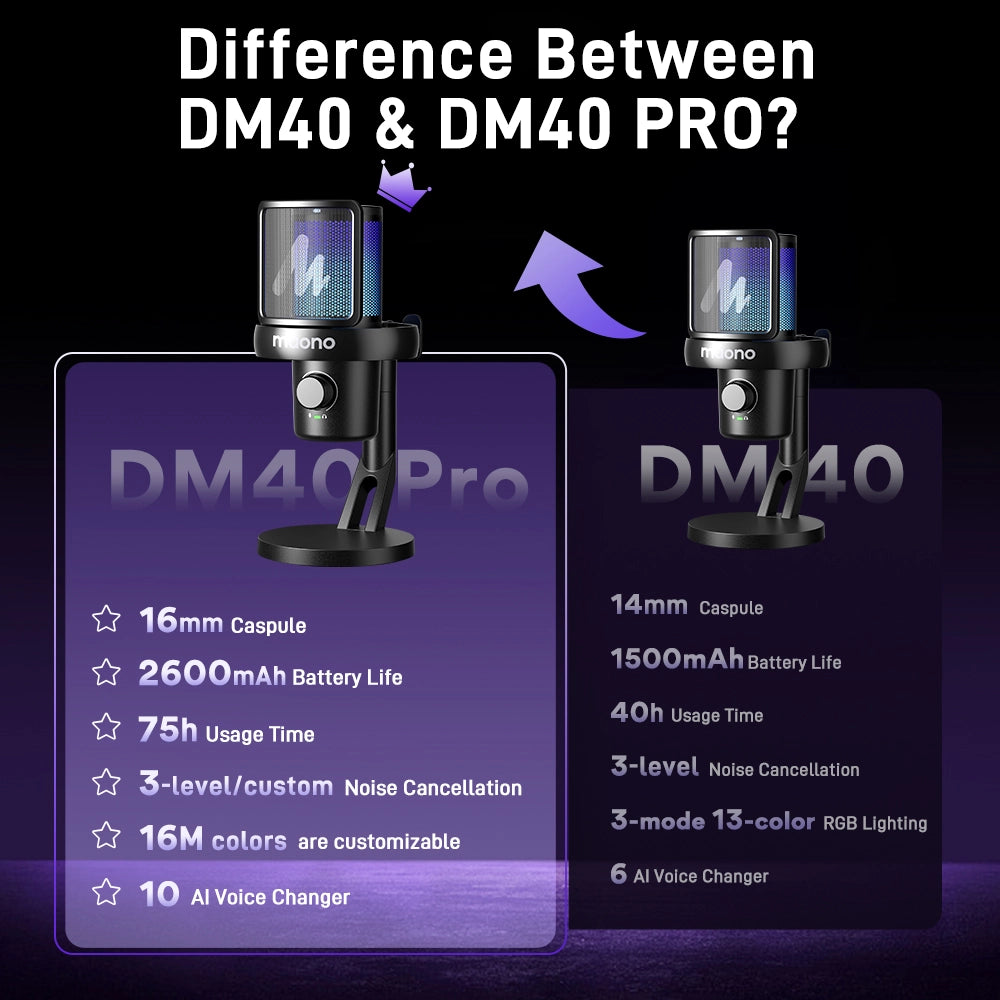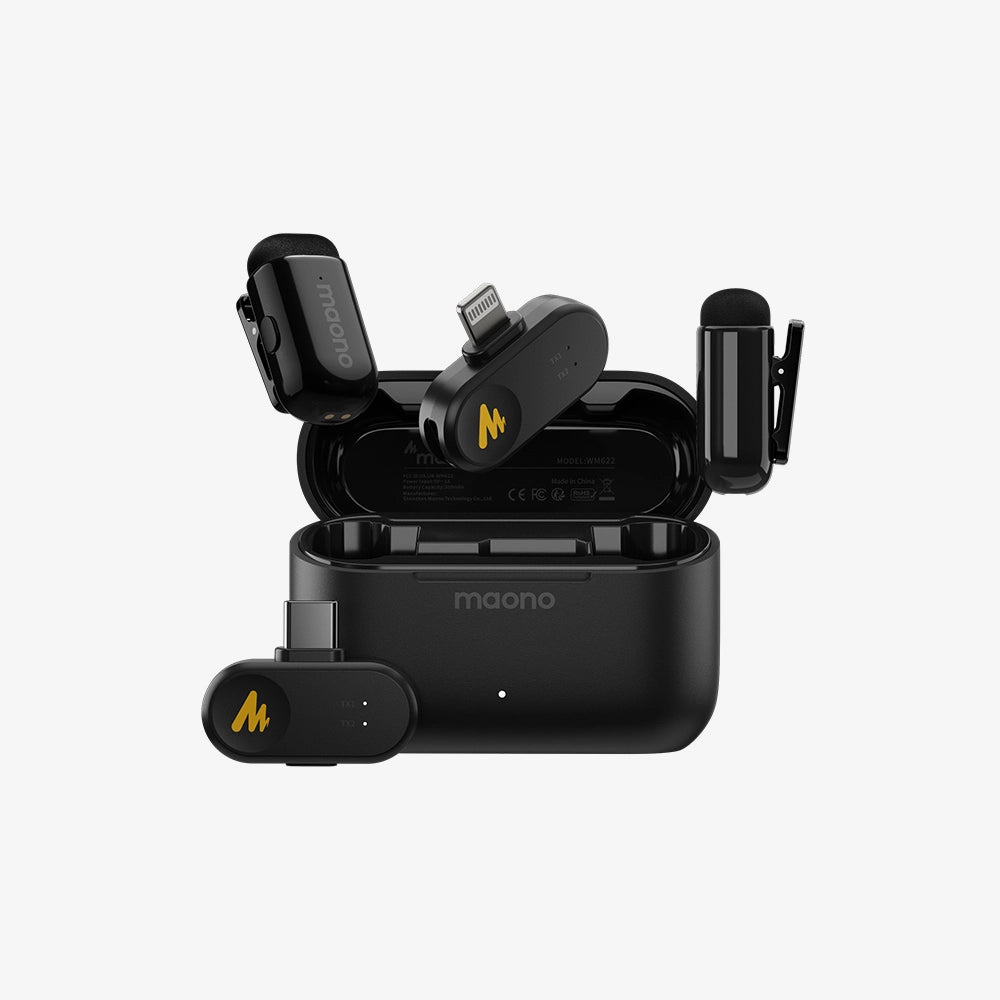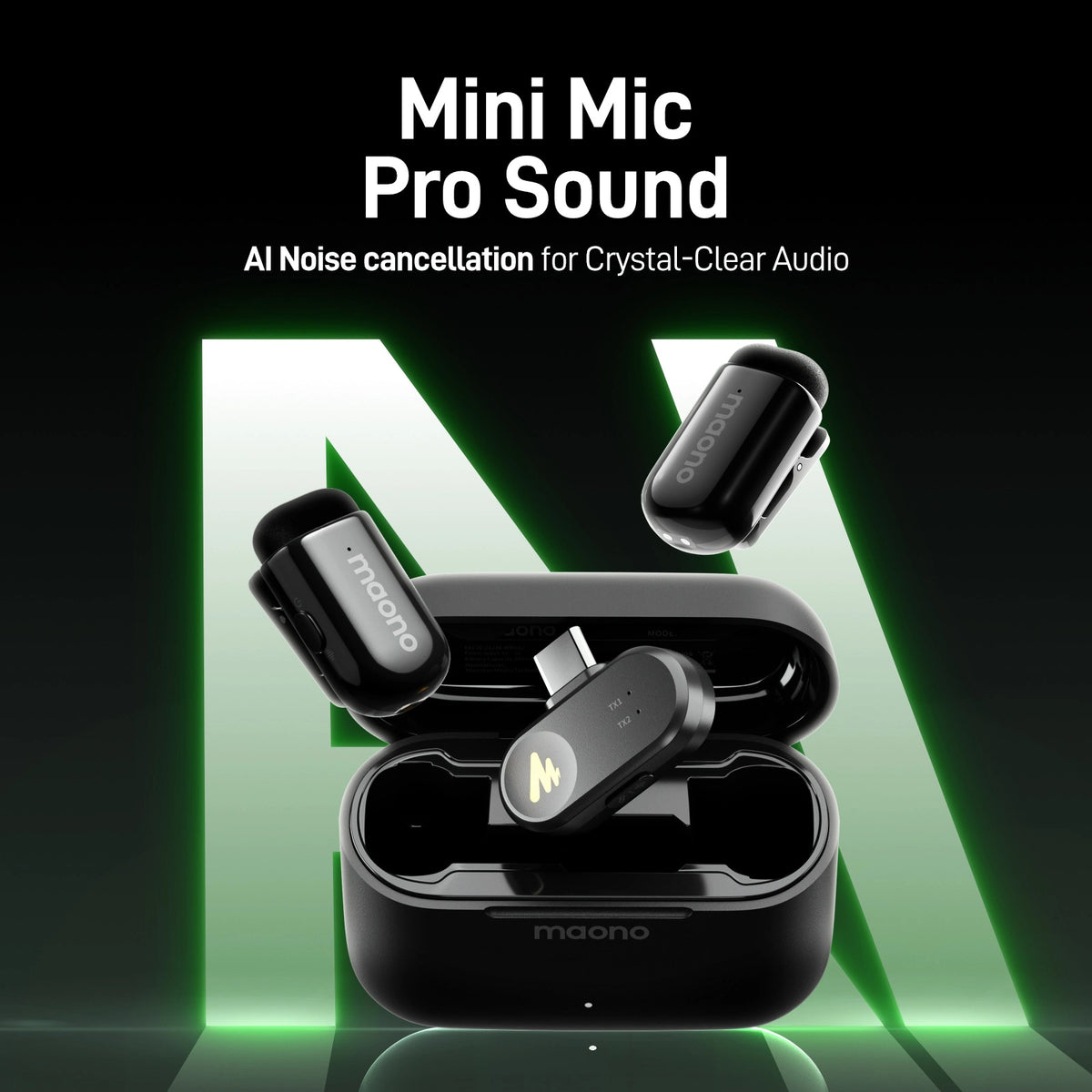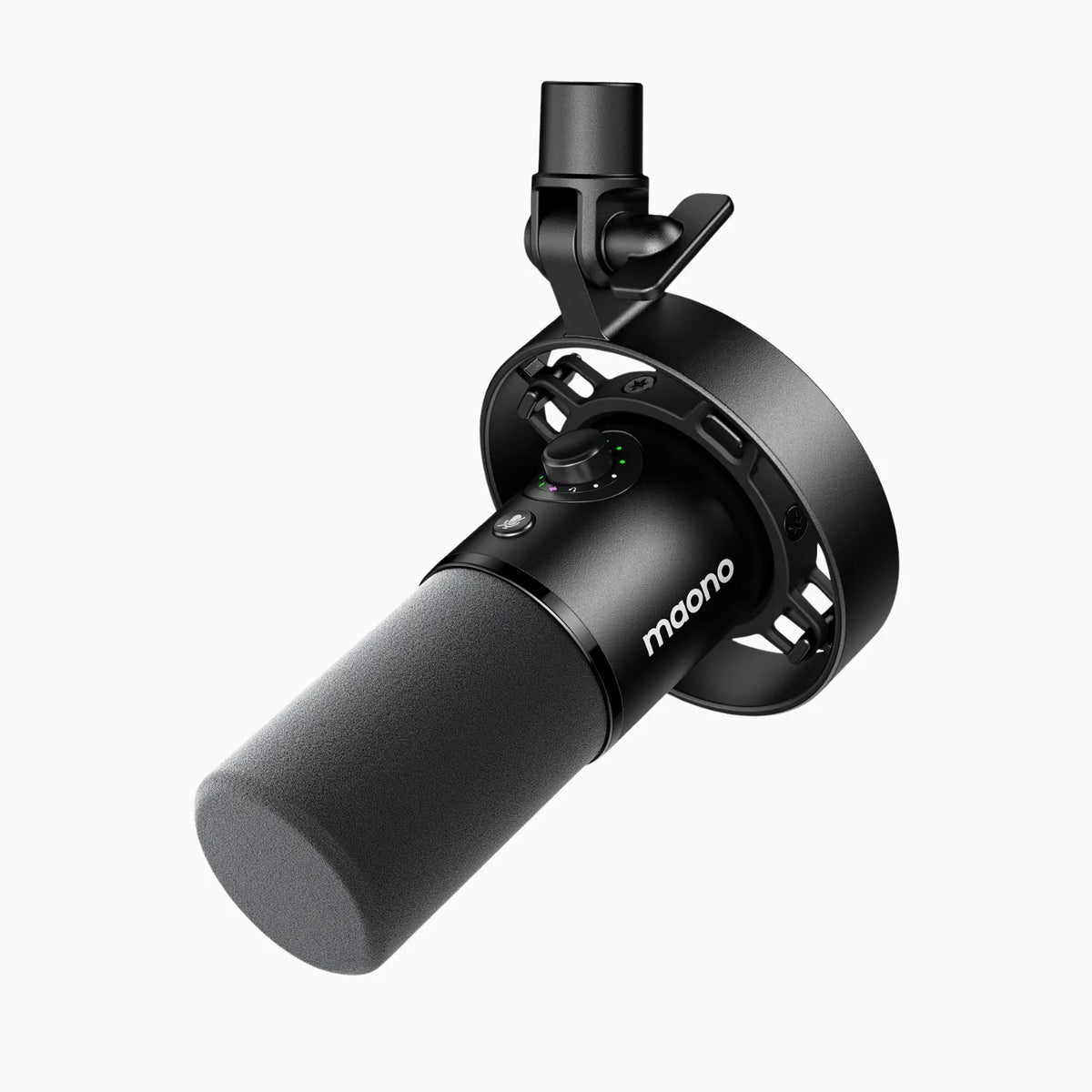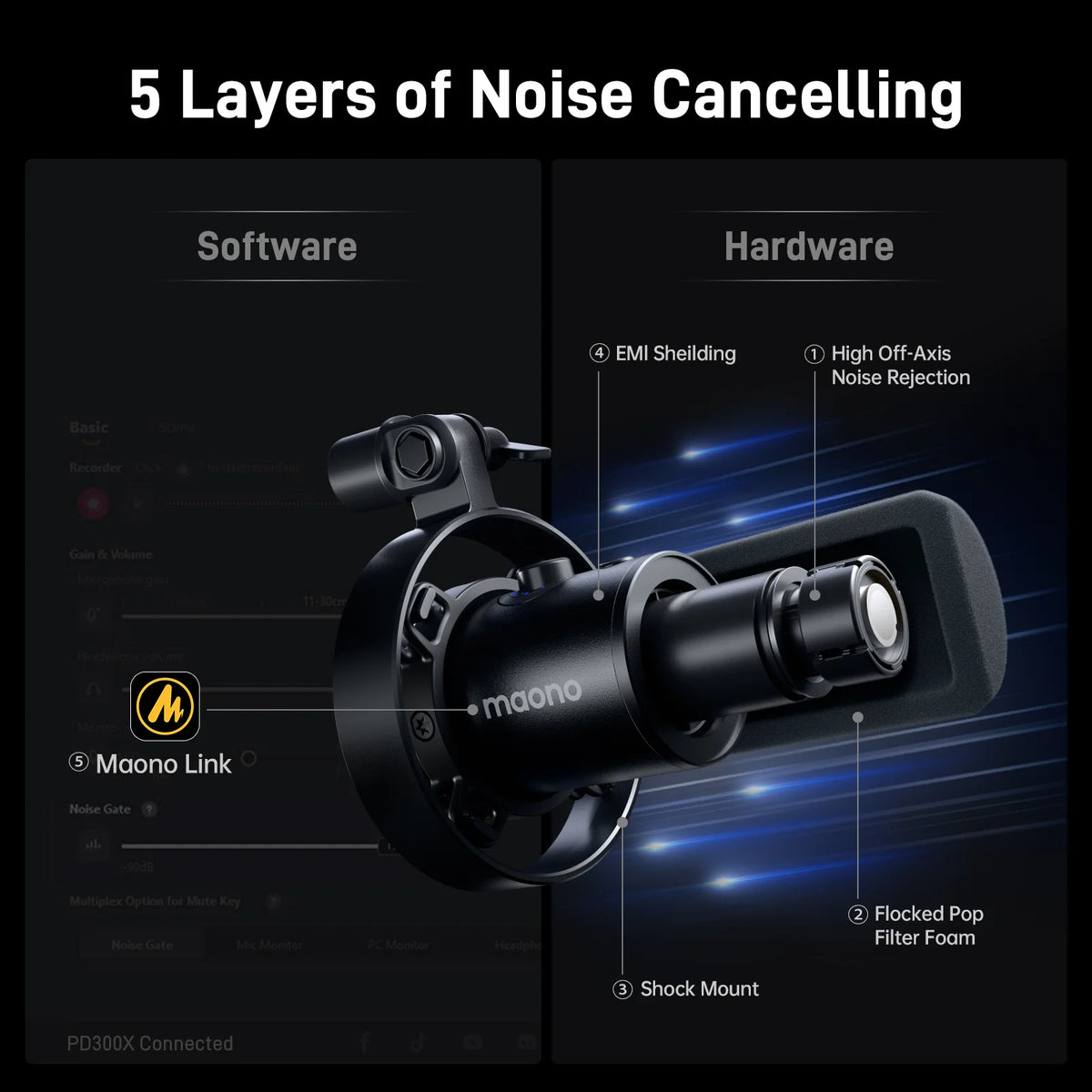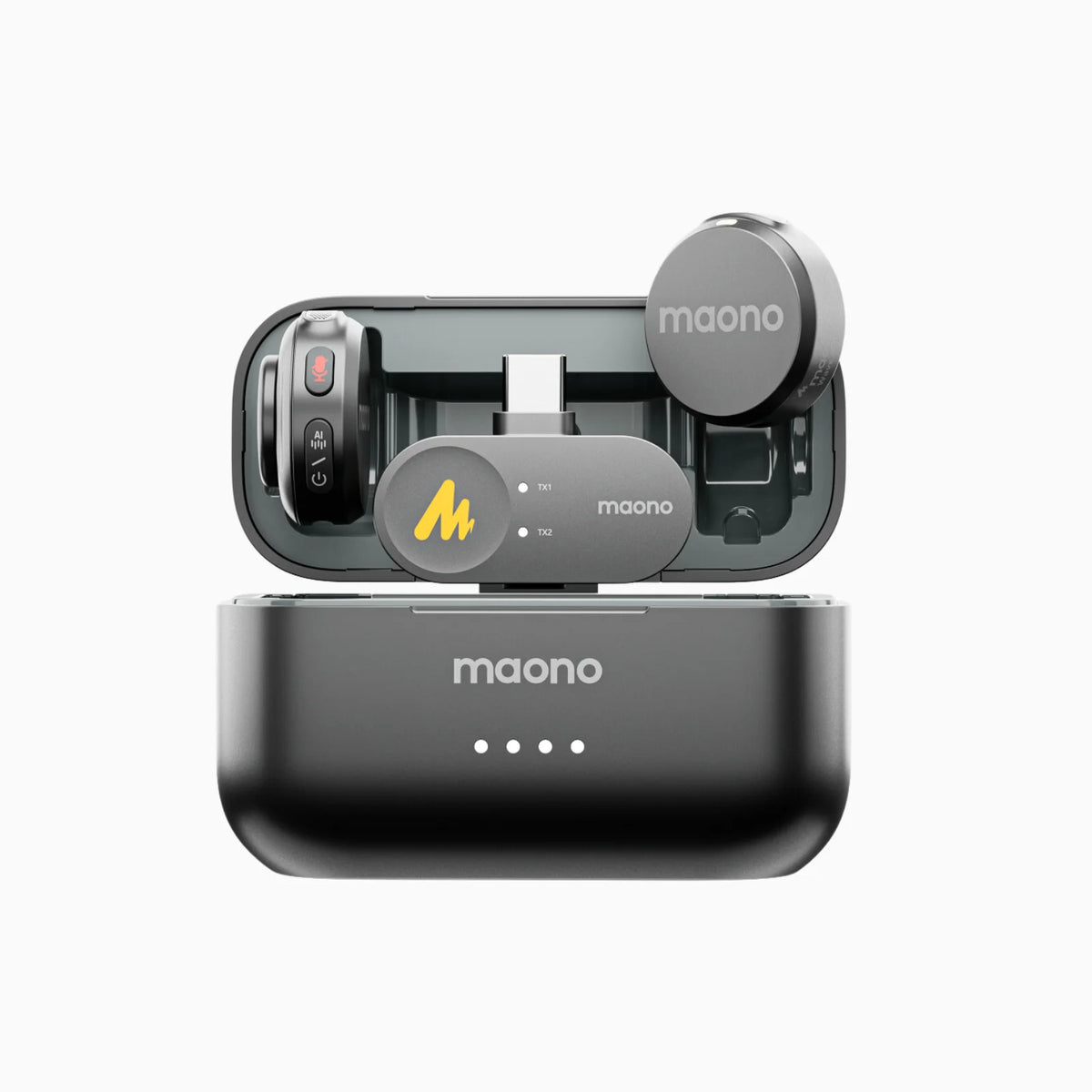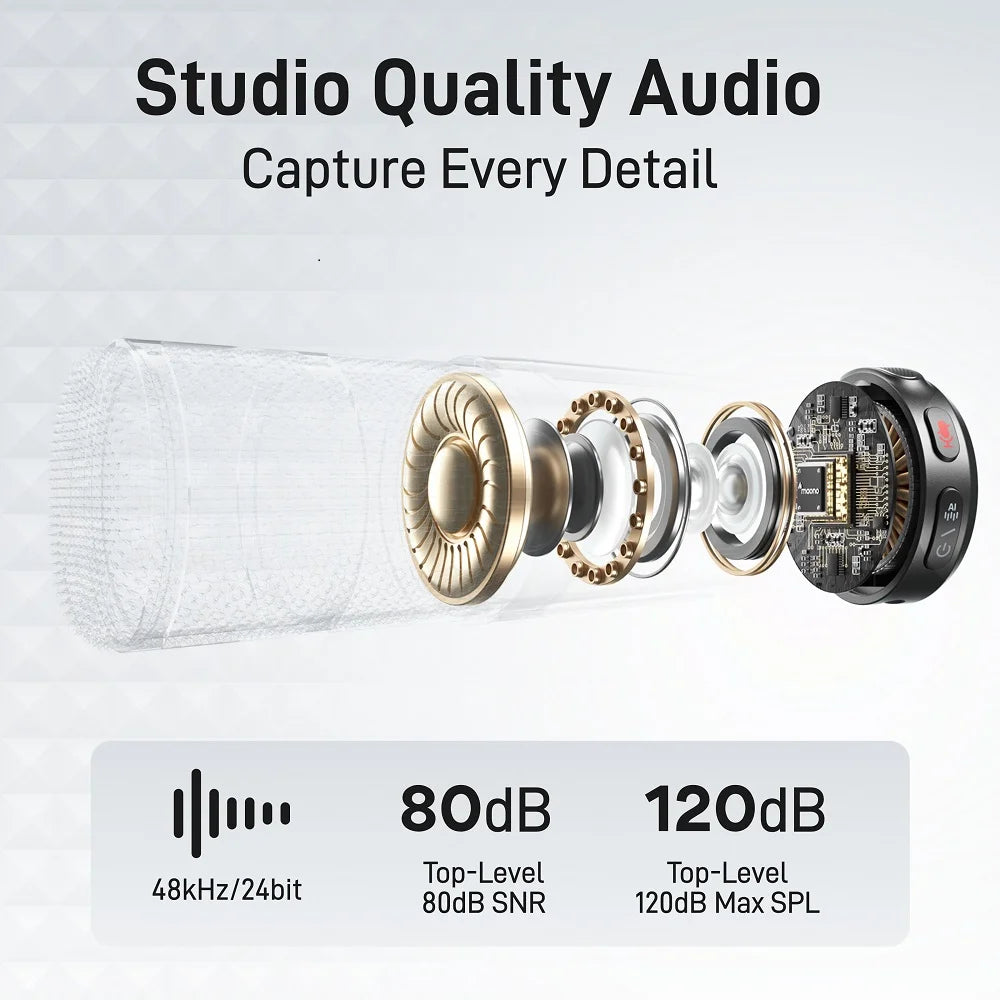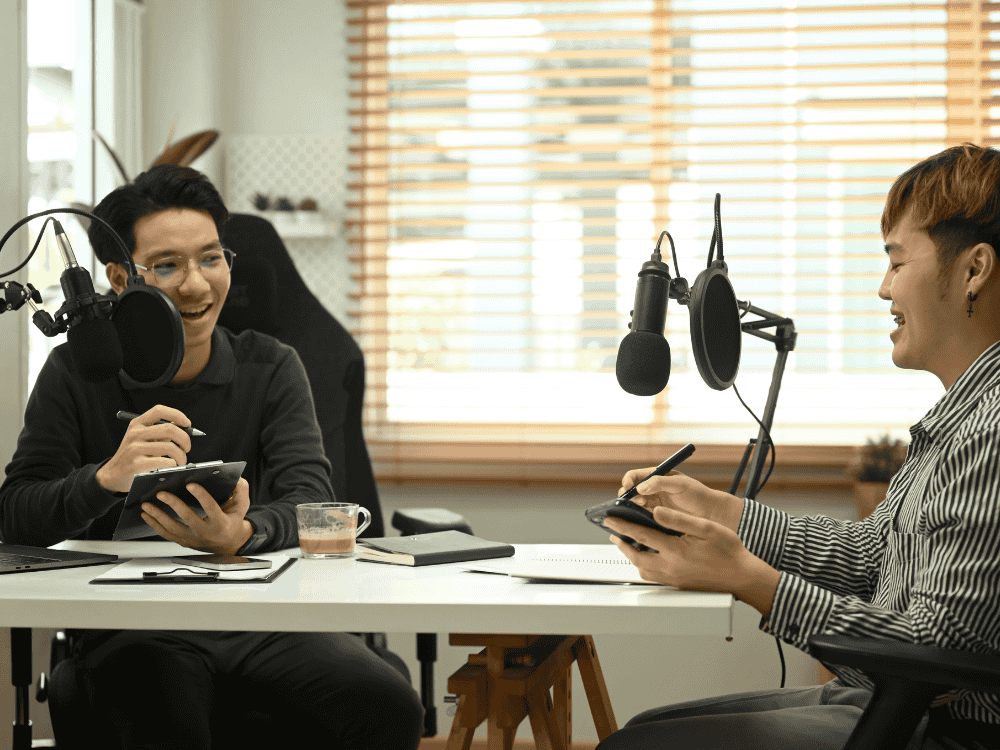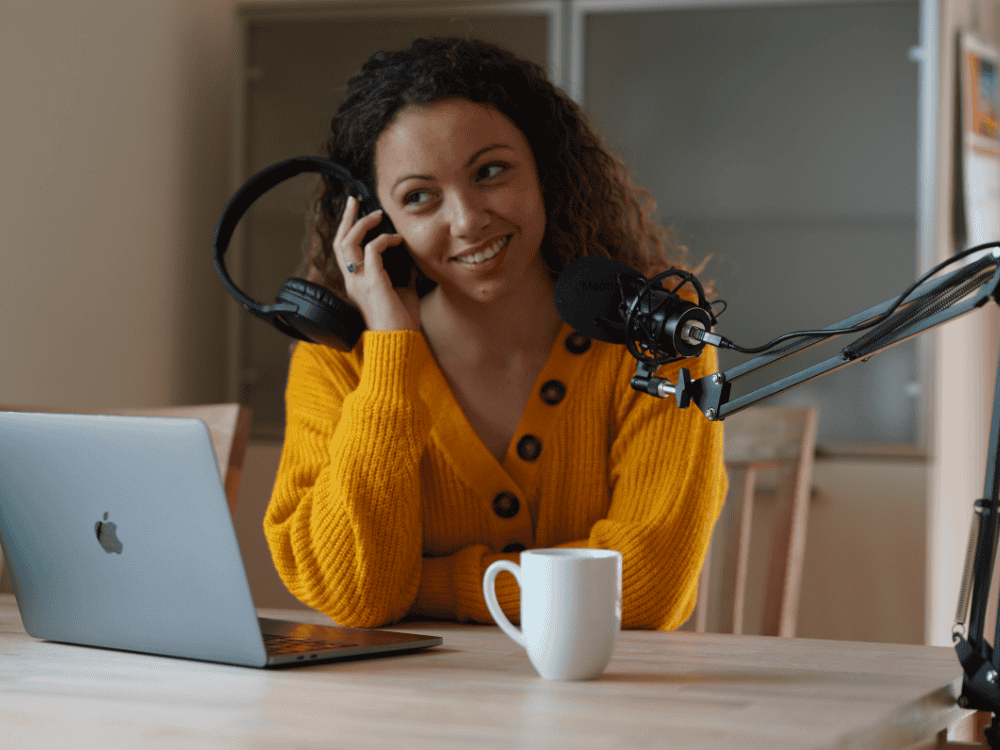Are you thinking about starting a podcast and getting a co-host, but you're not sure where exactly to look? Let’s explore what you need to know when starting a podcast—from choosing the right podcast microphone to finding a co-host who matches your energy—and find out whether having a co-host is right for you, or if starting solo might be the better choice. Whether you’re eyeing one of the best podcast microphones on the market or looking for a cheap podcast microphone to get started, having the right gear is essential. A reliable inexpensive podcast microphone can offer convenience and great sound quality without breaking the bank. For beginners, finding the best budget microphone for podcasting paired with a solid microphone setup for podcast can make the launch process smoother and more professional.
What is a podcast?
A podcast is an on-demand digital audio (and sometimes video) program you can listen to or watch anytime, anywhere. Think of it as a modern radio show—but with more variety, niche topics, and hosts who are often regular people with something to say. Podcasts can be informative, entertaining, or deeply personal, covering everything from news and tech to comedy, wellness, and true crime.
Does a podcast need to have video or is audio enough?
While video podcasts (vodcasts) are growing in popularity thanks to platforms like YouTube, traditional audio-only podcasts still dominate. Whether your show needs video depends on your content, audience, and production capacity. Many podcasters start with audio-only for simplicity and then gradually expand into video as their audience grows.
What are the types of podcasts?
Podcasts come in various types to suit different topics and styles:
-
Interview-based
One or more hosts interview guests in each episode.
-
Solo
A single host shares insights, stories, or commentary.
-
Co-hosted
Two or more hosts share the spotlight, often with lively banter and differing viewpoints.
-
Narrative/Storytelling
Highly produced episodes with narration, sound design, and often a script.
-
Panel-style
Multiple guests or hosts share a roundtable-style conversation.
What are the different podcast formats?
Podcast formats reflect how episodes are structured:
-
Episodic: Standalone episodes; listeners can jump in anywhere.
-
Serial: A story or theme unfolds over multiple episodes.
-
Hybrid: A mix of formats—interviews, storytelling, solo commentary.
Understanding your podcast's type and format will help you decide if a co-host is right for you and what kind of partner to look for.
How to Find the Perfect Podcast Co-host: Tips for Beginners
And don’t overlook the technical side—coordinate your microphone setup for podcast sessions early to avoid compatibility or quality issues.
-
Define your podcast’s theme and goals. Knowing your niche helps you find someone equally passionate.
-
Know what you want in a co-host. Are you looking for a balance of humor and facts? Do you need someone to bring a different perspective?
-
Consider commitment levels. Make sure your potential co-host is just as committed to content creation, scheduling, and growth as you are.
How do you find co-hosts for your shows or podcasts?
Here are some simple, effective strategies to find the right partner:
-
Start within your network. Friends, colleagues, or peers who share your interests might be a great fit.
-
Attend podcasting or niche-specific events. You can meet aspiring podcasters at conferences or online meetups.
-
Use social media and forums. Post in Facebook groups, Reddit threads (like r/podcasting), and Twitter/X asking for collaborators.
-
Try podcast-specific platforms. Websites like Podmatch, MatchMaker.fm, and Podcast Guests are designed to connect podcasters and potential co-hosts.
Where to Look for a Podcast Co-host: Top Platforms & Communities
-
Podmatch – A dating-style platform for podcasters looking for co-hosts or guests.
-
MatchMaker.fm – Connects podcast hosts with potential co-hosts, guests, and collaborators.
-
Facebook Groups – Search for “Podcast Collaboration” or “Podcast Guest Exchange.”
-
Reddit – Try r/podcasting and r/podcasts for co-host search posts and advice.
-
Discord servers – Some communities like "Podcast Movement" have active collaboration boards.
What Makes a Good Podcast Co-host? Personality, Skills & Chemistry
A great co-host isn’t just someone who talks well—they:
-
Share your passion. They should care deeply about your podcast topic.
-
Complement your style. If you’re analytical, they might bring humor. If you’re structured, they might offer spontaneity.
-
Communicate well. Responsiveness, respect for deadlines, and open dialogue are crucial.
-
Have chemistry. Good on-air energy is everything. Try recording a test episode to see how you vibe.
Podcasting with a Partner: How to Test Compatibility with a Co-host
Before launching, try the following:
-
Do a trial run. Record 2-3 practice episodes with your potential co-host.
-
Share expectations. Discuss goals, frequency, branding, and tone.
-
Evaluate the collaboration. Did the conversation flow? Were they reliable in prep and recording? Did you both enjoy it?
Interviewing Potential Podcast Co-hosts: Questions to Ask Before You Commit
Ask these essential questions:
-
Why do you want to co-host a podcast?
-
What’s your experience with audio or public speaking?
-
How much time can you commit each week?
-
How do you handle creative disagreements?
-
Do you have any gear or recording experience?
The goal isn’t just to hear their answers—but to understand how well your values and expectations align.
The Pros and Cons of Having a Podcast Co-host
Pros:
-
Shared workload (editing, social media, planning)
-
More dynamic conversations and content
-
Built-in support system
-
Attracts listeners who enjoy diverse perspectives
Cons:
-
Scheduling can be harder
-
Creative differences may arise
-
Uneven commitment levels can cause burnout
- Shared branding and monetization can get tricky
To minimize friction, set expectations early. Talk openly about your schedules, equipment (like who needs to upgrade to the best podcast microphones), and goals.
How Often Should Co-hosts Meet to Create New Episodes?
Ideally, co-hosts should record weekly or biweekly to maintain momentum and consistency. Use digital tools like Zoom, Riverside.fm, or Zencastr for remote co-hosting. Ensure both ends are using a decent microphone setup for podcast to maintain professional-quality audio. There’s no one-size-fits-all answer, but consistency is key. Most co-hosting pairs:
-
Meet weekly or biweekly to record
-
Plan content outlines in shared docs or apps like Trello/Notion
-
Communicate regularly via Slack, email, or Zoom
Ideally, co-hosts should record weekly or biweekly to maintain momentum and consistency. Use digital tools like Zoom, Riverside.fm, or Zencastr for remote co-hosting. A successful co-hosting relationship relies on clear expectations and steady communication. Ensure both ends are using a decent microphone setup for podcast to maintain professional-quality audio.
How to Structure Your Podcast with a Co-host: Roles, Responsibilities & Format
Decide who will:
-
Lead the conversation or introductions
-
Handle technical tasks (editing, uploading, promotion)
-
Research and plan episodes
-
Manage guest outreach
Structure the show to give both hosts space to shine while maintaining clarity for the listener. Many duos alternate lead roles or assign each person recurring segments.
Legal & Financial Agreements with Podcast Co-hosts: What You Need to Know
Don’t wait for problems—discuss and document everything early on:
-
Who owns the brand or episodes?
-
How will income be split?
-
Who pays for editing, hosting, or a cheap podcast microphone upgrade?
-
What happens if one of you leaves?
A simple contract or memorandum of understanding can go a long way in protecting both parties. Consider using a podcast agreement template or consulting a media lawyer, especially if you plan to monetize.
What Podcast Microphone to Choose When Doing a 2-Person Podcast?
Sound quality is everything—especially with two voices. Invest in individual mics for each host.
We recommend:
Maono PD400X – The Maono PD400X is a dynamic USB/XLR microphone that delivers rich vocal clarity, built-in gain control, and real-time monitoring. Great for beginners and pros alike.
Maono PD300X – Maono PD300X is a solid budget-friendly option with excellent noise rejection, perfect for co-hosts recording in less-than-ideal environments.
Make sure each co-host records separately (dual-track recording) to allow for better post-editing control and clarity.
Conclusion
Finding the right podcast co-host can elevate your show from good to great. But it takes careful thought, communication, and planning—from deciding your format to choosing the best podcast microphones and aligning your creative goals.
Start by clarifying your podcast’s goals, exploring platforms to connect with likeminded collaborators, and evaluating compatibility through trial recordings and clear communication.
Most importantly, treat your co-host relationship like any partnership—founded on trust, aligned goals, and mutual respect. With the right setup, schedule, and gear like the Maono PD400X or PD300X, your two-person podcast can deliver compelling content that keeps audiences coming back for more.
Remember, your podcast’s success depends on your content and your collaboration. Take the time to test compatibility, communicate openly, and invest in a good microphone setup for podcast production. Whether you go solo or co-hosted, you’ll be well on your way to creating a show worth listening to.
Related articles:
Different Types of Podcasts & Choosing a Wireless Microphone Guide
Podcast Format Guide: Choosing Styles & Wireless Microphone Setup




